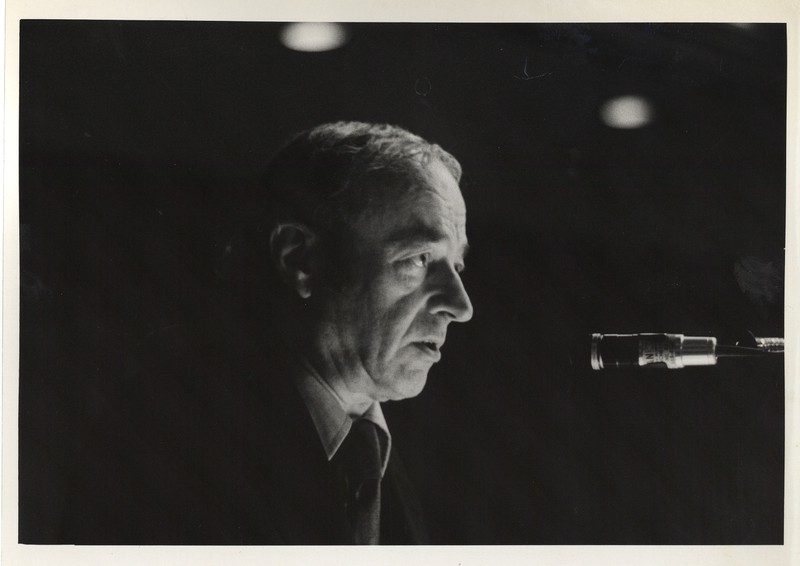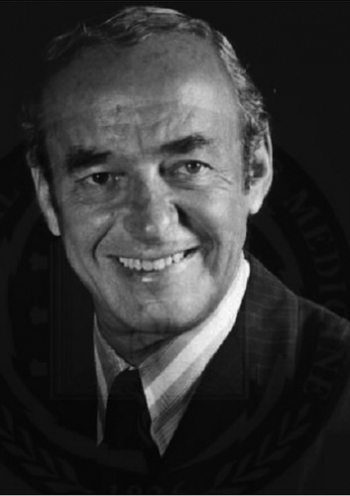A VA physician and researcher performed groundbreaking work that helped change how hypertension, commonly known as high blood pressure, is treated.
In 1964, Dr. Edward Freis of the Washington DC VA launched the first well-designed, placebo-controlled trial to show whether medication can prevent death in those with moderate high blood pressure. In the five-year trial on antihypertensive drugs, Freis and his colleagues aimed to determine whether treating hypertension would help prevent death and incapacity due to heart attack, congestive heart failure, stroke or kidney damage.
The study was the first of its kind to show that treating high blood pressure reduced the incidence of major hypertensive complications. The treatment group showed a 50% reduction in stroke, congestive heart failure, and progressive kidney damage. The study failed to demonstrate a treatment benefit for preventing heart attack and sudden cardiac death. But it showed that even moderately high blood pressure, if left untreated, can lead to disability and death.
For his work, which led to a revolution in the care of people with hypertension, Freis became known as the leader of the first multicenter, double-blinded, randomized-controlled trial of cardiovascular drugs. In 1971, he received the prestigious Albert Lasker Clinical Medical Research Award for demonstrating the “life-saving effectiveness of drugs in the treatment of moderate hypertension.”
Originally considered acting career
Freis, born in Chicago in 1912, originally considered a career as an actor, before turning his focus to medical research. He graduated from the University of Arizona in 1936 and received his medical degree at Columbia University in 1940.
Freis studied in Boston University’s internal medicine training program, then did a research fellowship at Evans Memorial Hospital in Boston with Dr. Robert Wilkins, who made many advancements in the research of hypertension and heart disease. He then joined the U.S. Army Air Corps (later the U.S. Air Force) during World War II. He served as the assistant chief, then chief, of a pathology laboratory at a base in Nebraska from 1942 to 1944. He was later the chief of the Laboratory Service Rheumatic Fever Research Program on the base.
In the Army Air Corps, Freis worked with Dr. Arthur Mirsky, who was famous at the time for his diabetes research. Mirsky taught Freis how to carry out a medical investigation. In 1944, they published a paper together on shock induced by trypsin, a digestive enzyme that breaks down proteins in the small intestine.
Conducted many studies mainly on cardiac patients
After the war, Freis returned to Boston and completed another residency and a research fellowship at Evans Memorial Hospital. In 1949, he relocated to Washington to be the assistant chief of medical service at the DC VA and a faculty member at Georgetown University. At the DC VA, Freis conducted studies mainly on cardiac patients. He learned that cardiac output, the amount of blood the heart pumps through the circulatory system in a minute, and stroke volume, the amount of blood pumped from the left ventricle of the heart per beat, decreased in proportion to the severity of a heart attack.
In 1956, Freis, then the chief of medical service at the DC VA, assembled a group of colleagues from other VA facilities to start a cooperative study on antihypertensive drugs. Previously, high blood pressure was considered a normal part of aging, and it was not yet known that treating high blood pressure could prevent death. The goal of the study was to learn how well newer drugs control high blood pressure and whether they can prevent artery hardening, heart attacks, strokes and other complications. By the 1950s and 1960s, effective drugs for reducing blood pressure were becoming available.
Results of the first series of studies by this group of researchers appeared in the Annals of Internal Medicine between 1960 and 1962.
More Information
Click here to read the full story.
Click here to learn more about VA research.
Topics in this story
More Stories
Diverse representation of women in health care research allows MVP to make discoveries for women’s health
Join the Million Veteran Program online. You will have the option to receive an at-home blood sample collection kit in the mail.
VHA's new podcast series, New Horizons in Health, features a candid discussion of psychedelic assisted therapies for Veterans experiencing mental health conditions.







